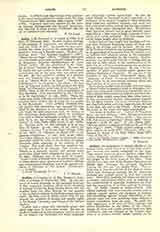

Auditor, the designation of certain officials of the Roman Curia, whose duty it is to hear (Lat. audire) and examine the causes submitted to the pope. They cannot, however, give a decision unless they receive delegated jurisdiction. They are, therefore, not judges in the strict sense of the term. These officials have been part of the Roman Curia since the Middle Ages. Amongst the principal dignitaries bearing this title are: (1) Auditor Papa;. This official was at first the adviser of the pope in consistorial and theological matters, but he afterwards received also judicial power in civil and criminal cases. Since 1831, however, his duties are restricted to certain ecclesiastical affairs, such as assisting at the examinations of episcopal candidates for Italy and the transaction of matters relating to favors, etc. (2) Auditor Camera: or Auditor General. This official originally had very extended powers, such as judging appeals against the decisions of bishops, and proceeding against bishops themselves in important cases and even punishing them without a special commission from the pope. He could also take cognizance of all cases of civil, criminal, and mixed jurisdiction in the States of the Church. Nearly all these and similar powers have now been withdrawn, and the tribunal of the Camera Apostolica is at present limited almost entirely to expediting commissions in certain well-defined cases. (3) Auditors of the Rota were originally chaplains of the pope. By degrees they were constituted into a tribunal, and are said to have derived their name from the round table (Lat. rota) at which they sat. Important cases laid before the Holy See by sovereigns and nations were referred to the Rota for judgment, and its decisions became precedents for all other tribunals. It also served as a supreme court for civil cases in the States of the Church. At present, however, the Auditors of the Rota are restricted practically to giving deliberative opinions in processes of beatification or canonization and deciding questions of precedence between ecclesiastical dignitaries. They are generally also attached as Consultors to various Roman Congregations.
WILLIAM H.W. FANNING

